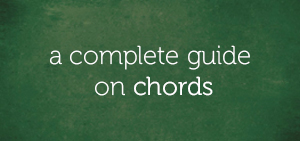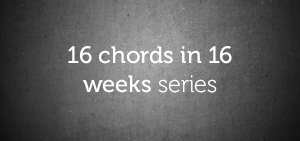On several occasions, I’ve been asked why musicians have a favorite key and today I want to answer.
There are 12 major keys and 12 minor keys in tonal music and that’s a total of 24 keys. The ideal thing is for every keyboard player to play in all the keys. But in actuality, a vast majority of musicians have one favorite key out of the 12 major keys.
Today, we’ll be looking at some of the reasons why keyboard-playing musicians have their favorite keys.
7 Top Reasons Why Musicians Have A Favorite key
Although there are tons of reasons (valid and invalid), I made a list of the the top seven reasons why keyboard-playing musicians have a favorite key they play on.
Attention: If I skip any of the reasons you think should have made it to my list, endeavor to let me know in the comment section.
1. They Started Playing On A Particular Key And It Became A ‘Comfort Zone’
There are 12 major keys to learn on the keyboard (like I said earlier).
But at the beginners’ stage, if you’re not fortunate enough to have a teacher who can lay the foundation for playing in all the keys for you (which takes a long time and can be tedious), you’ll certainly start out by playing a particular key.
This particular key is usually used as a reference to teach, explain, illustrate, and test the student. Over time the key becomes a comfort zone for the student and after 3 months, 9 months, 1 year, 3, years, 7 years, 13 years, the student will always feel comfortable while playing on that particular key he/she started playing on.
Submission: Although learning on a particular key is for the purposes of teaching, explanation, illustration, and examination, so that after mastery, the student will proceed to learning other keys, that particular key ends up becoming a favorite key.
2. They Want To Master One Key, Then Proceed To The Remainder Keys
Learning how to play in all the keys can be tedious.
So many keyboard playing musicians at the beginners’ phase of their development get discouraged trying to play in all keys.
At some point, they make a decision to learn in one key, master the key, then proceed to learning other keys. Today, they’ve moved past the beginners’ phase of development and are supposed to go beyond playing in one key.
But they get stuck on the key (which has become their favorite) and after trying to explore a few other keys and giving up, they settle for that one key and make it their favorite.
3. Learning All 12 Major Keys Can Be Overwhelming
Every keyboard playing musician knows the mental, technical, and physical demands of learning how to play in all the keys.
Learning how to play every single note, scale, interval, chord, progression, and song in 12 different major keys is NOT an easy thing to do.
Apart from having the right foundation of musicianship, it takes dedication to memorizing patterns, dutiful practice, and devotion to your instrument (among other factors) to get to that point where you can comfortably play on any key.
So many keyboard-playing musicians who settle for playing on their favorite key are overwhelmed by the price and process of learning how to play in all the keys.
4. They Are Able To”Electronically” Transpose Ideas On The Keyboard
The term transpose has been mislabeled in several music circles, it has to do with the transfer of position.
Whenever a music idea (be it a note, scale, interval, chord, progression, or song) is transferred from its position in a key to another key, such an idea is said to be transposed.
Transposition is the foundation to playing in all the keys on the piano. A keyboard player who can transpose mentally should be able to move things around the keyboard from one key to the other.
But modern keyboards are technologically advanced and they have key shift buttons (- and +) that makes it possible for music ideas to be transposed electronically.
A vast majority of keyboard playing musicians have their favorite key and use the key shift buttons to transpose to their favorite key.
Due to the fact that it doesn’t seem like modern keyboards will stop coming with key shift buttons and functions, so many musicians are comfortable in their favorite key and don’t feel the need to play in all the keys.
5. They Haven’t Made Up Their Mind To Play In All The Keys
One of the greatest reasons why a certain number of keyboard-playing musicians have a favorite key is because they haven’t made up their mind to start and continue playing in all the keys.
Notice the emphasis on start and continue; hence, two categories of people.
In the first category are players who are familiar with the major scale, chords and more in all the keys, but never make that decision to really go beyond playing on their favorite key.
In the second category are those who make up their mind to start playing in all the keys, but after a while, they end up returning to their favorite key.
6. Certain Music Genres Are Predominantly Played On A Particular Key
When people play a particular music genre for a while, they begin to gravitate towards a particular key and will eventually have a favorite key where they’ve memorized chords, progressions, patterns, licks, runs, riffs, and other stylization elements.
If you love Gospel music, it’s possible that any of the following keys are most likely to be your favorite key:
Db major:
Eb major:
F major:
Gb major:
Ab major:
Bb major:
…and this is because tons of songs are written, recorded, and performed in these keys.
It’s very rare to find a traditional gospel song written or recorded in the following keys:
D major:
B major:
E major:
A major:
…and even when you do, it doesn’t change the fact that traditional gospel songs are written and recorded predominantly in the keys mentioned earlier.
This should explain why some of the people who have a favorite key are those who have played tons of songs (of a particular genre) on that particular key.
7. They Have Tried Learning All The Keys Severally Without Success
This reason right here can be frustrating and explains why a lot of musicians have resigned to their favorite key; who believe they’ve tried their best to learn how to play in all the keys.
Playing in all the keys can grow from being difficult to being impossible when one does’t have the right foundation of musicianship; by this, I mean a theoretical and practical background that is thorough and specifically tailored for the student.
Most musicians who can play in all the keys (without a favorite key) graduated from the school of hard knocks where they created a mental link that helped them master all the keys.
Musicians who can’t create this mental link or pass through the tedious process of self-training give up and settle for a particular key that becomes their favorite eventually.
Final Words
Thank you for reading through.
Although there could be other reasons why keyboard-playing musicians out there have a favorite key. I’ve done my very best to highlight the top seven reasons based on my experience and interaction with musicians for over 2 decades and still counting.
If you’re one of those who have a favorite key of the keyboard, the goal of this lesson is neither to encourage nor discourage you.
“So, What’s My Goal?”
I’ve been in that situation or position where I have a favorite key and almost all the reasons I highlighted in this lesson kept me from exploring other keys and it really limited me.
Today, I have gone beyond having a favorite key on the piano, to the point where I can boldly defend my mastery of all the keys on the keyboard.
If you’re interested in going beyond having a favorite key on the piano, click over to the Gospel Music Training Center now and enroll for the foundation lessons.
All the best!
Chuku Onyemachi
Latest posts by Chuku Onyemachi (see all)
- CHORD UPGRADE: How To INSTANTLY Upgrade Triads And Seventh Chords To Ninth Chords
- The Formation Of Diminished Seventh Chords Used To Be Challenging Until I Did This
- How To Form Seventh Chords In Two Shakes Of A Dog’s Tail Using Third Intervals And The Circle Of Fifths Chart
- I Played The 13sus4 Chord And This Happened…
- How To Build Seventh Chords Like An Architect Using “Foundation And Structure” Concept







Comments on this entry are closed.